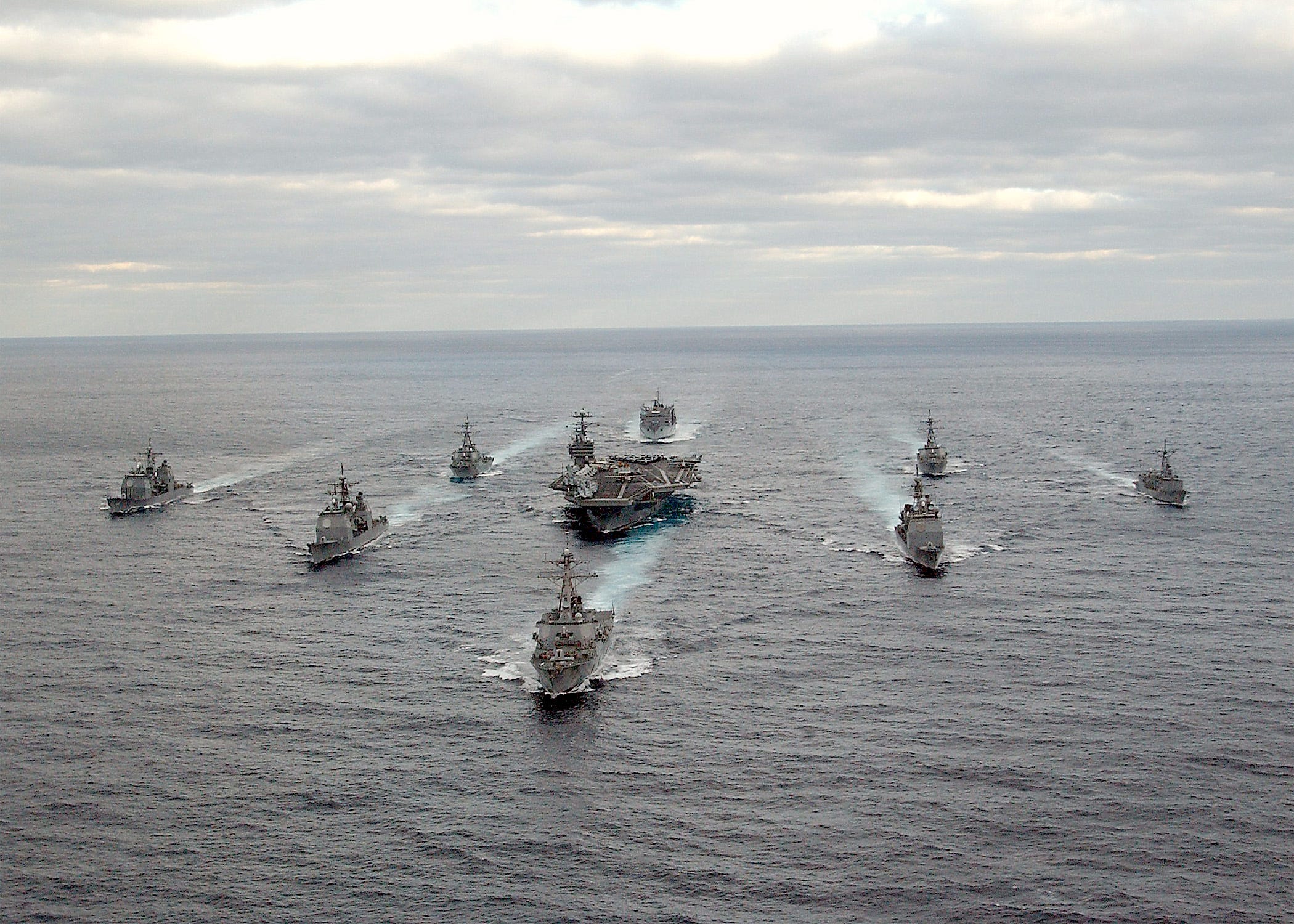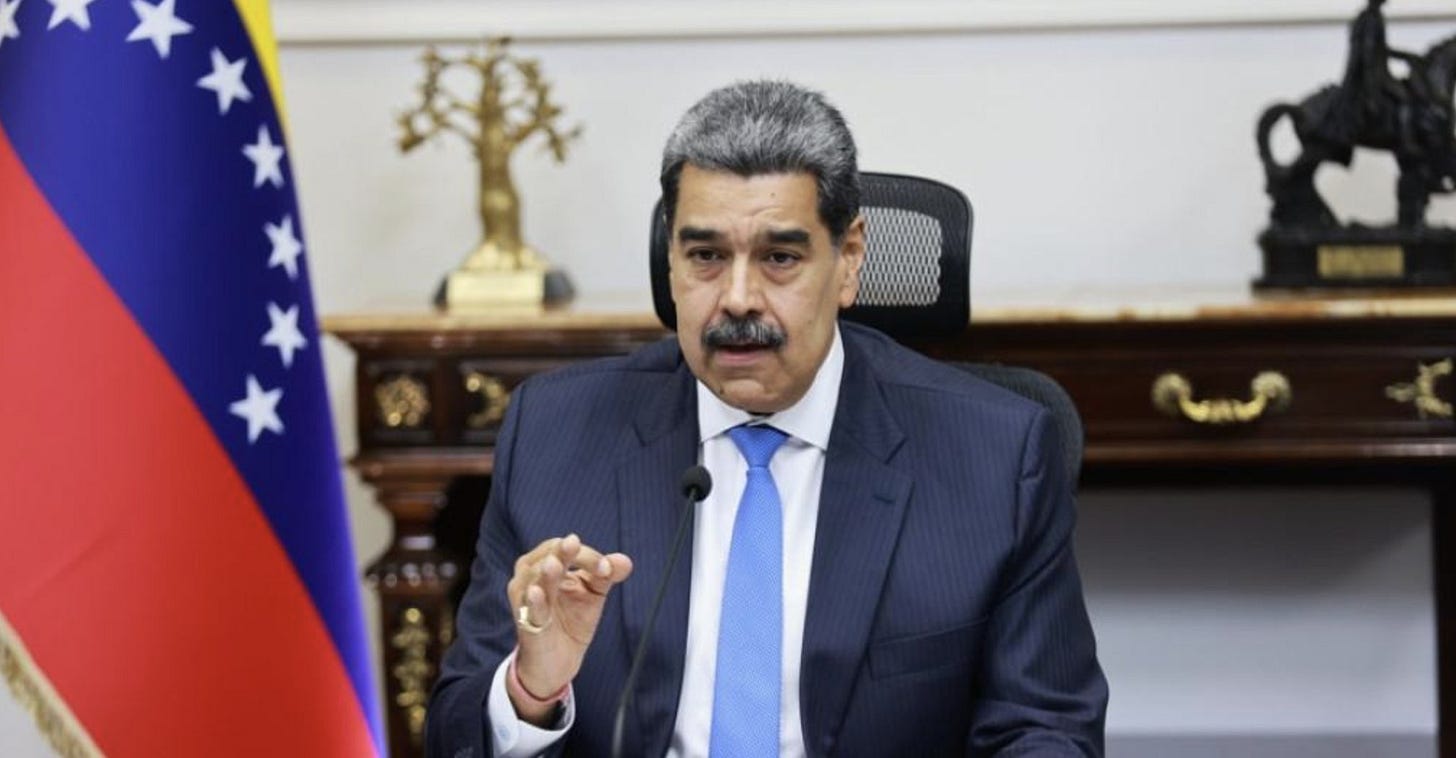Trump's Venezuela gambit may be a show, but it's ratcheting up pressure on civil society
Warship deployments, bounties, and aggressive rhetoric from the White House put Venezuela on "high alert"

Over the years, covering both Venezuela and migration, usually but not exclusively from Colombia, I have developed a lot of contacts in the country. In that time, many of those contacts have grown into friends.
It’s not unusual for those friends to decline to comment officially to me about Venezuela, or to request anonymity when they do so. I’ve often had to draw firm lines between what they tell me as a friend and what they tell me as a journalist.
In Venezuela, dissent is dangerous. After fraudulent elections in 2024, which were rejected by most of the international community, the government imposed a brutal crackdown on civil society. “Operation Knock Knock,” as Maduro called it at the time, resulted in thousands of arrests — many simply for criticizing the state on social media.
For many in the country, a nighttime knock on the door from SEBIN, Venezuela’s intelligence service, or FAES, the country’s shock police, is the stuff of nightmares.
And now, as the US clearly ramps up pressure on Maduro, through both rhetoric and action, government paranoia is again reaching a high point.
After declaring Venezuela’s government a “terrorist organization”, the Trump administration doubled the bounty on Maduro’s head to $50 million, alleging that he is the leader of what they term “the Cartel of the Soles.”
The White House has been openly exploring military options against organizations it deems to be organized crime groups in the Americas since January. In recent weeks, the US has further escalated tensions by dispatching warships to Caribbean waters, often near the Venezuelan border.
Although White House officials have not commented directly on the deployment, which Navy officials have said is part of coordinated anti-narcotrafficking efforts, the move is clearly designed as a show of force against Venezuela.
And though the Pentagon has been officially silent on the purpose of the warships, which include destroyers equipped with sea-to-land missiles, and over 1,000 marines, their rhetoric on Venezuela generally continues to escalate.
Sean Parnell, the Pentagon's chief spokesman, in public statements last week claimed cartels “have unleashed a historic wave of violence and terror across our hemisphere — and around the world — that has destabilized economies and internal security in countries, but also flooded the United States with deadly drugs, violent criminals, and bloodthirsty gangs.”
US foreign policy on Venezuela is confusing at best. The administration of US President Donald Trump just green-lighted a fresh oil production deal between Chevron and the Venezuelan government that generates $50 million — the amount supposedly on Maduro’s head — every three days.
Chevron tankers carrying Venezuelan oil have certainly passed within sight of US warships (for the moment back in US waters as part of maneuvers to avoid a hurricane brewing in the region) in waters near the Venezuelan coast.
Nonetheless, Venezuelan officials seem to be taking the threat seriously. The use of drones by civilians in the country has been banned, travel procedures at borders have tightened, and Maduro announced the mobilization of 4.5 million militia members. (Venezuela likely has between 300-400 thousand militia members total, but that is a story for another day.)
“No empire will touch the sacred soil of Venezuela,” he said, in a televised appearance announcing the measure.
Less publicized by Venezuelan state media, however, is the sense of paranoia that is gripping the Caribbean country. Multiple experts, journalists, and residents told Pirate Wire Services that the government is in a state of high alert, worried that foreign agents or mercenaries may be trying to enter or infiltrate Venezuela.
“I don’t post anything political on social media,” one journalist in Caracas told me, asking that his name be withheld for security reasons. “I’m not even covering Venezuela in the journalism that I do. I’m looking for work on other topics,” he continued.
“There is an atmosphere of paranoia here that began [after elections] last year, and it is being ratcheted up again.”
An official for PDVSA, Venezuela’s state-owned energy company, in Caracas, explained that it isn’t just potential dissidents who are feeling the effects of internal crackdowns; it is also Maduro supporters in government positions.
“I assume my phone is being tapped,” he told PWS via Signal, using a phone he purchased for the purpose of speaking openly about conditions. “There is a real fear of sabotage. There is a real fear of infiltration,” he wrote.
He also asked for anonymity. He describes himself as a Maduro supporter, but worries that the atmosphere of fear among government officials following elections last year has gone too far. “I don’t view [the naval deployment by the US] as a credible threat,” he said, “but of course the government has to take it seriously. Who knows what the Yankees are up to?”
Nonetheless, he described a fear so pervasive within PDVSA that it is affecting basic operations. “We have to tell them everything we do in advance,” he said. “Shutting something down even for simple maintenance raises alarm in Miraflores about sabotage,” he said.
Venezuelan Ministry of the Interior, Diosdado Cabello, in public comments on Tuesday, announced that the Colombian border is “guarded and protected to the extreme” by police and military forces. The Colombian-Venezuelan borderlands have also been the site of increased fighting between Colombian armed groups in recent weeks.
Those travelling by land between the two countries are screened thoroughly, a process that often involves intrusive searches of telephone history and social media. Foreigners from countries besides Colombia are often detained.
“It’s a bad idea to travel here from any country,” said the journalist in Caracas. “SEBIN suspects anyone not from Venezuela of being a foreign mercenary.”
For some Venezuelans outside the country, however, particularly those who identify as right-wing, the speculation of what US actions mean has reached a fever pitch. Youtubers and Instagram influencers publish breathless posts assuring that a military invasion is imminent, and Maduro’s time has come.
So what do I think about all of this? After nearly a decade of reporting on Venezuela (during much of which I lived on the Venezuelan-Colombian border, often travelling to western Venezuela), I can’t help but feel I’ve seen this cycle before.
Sadly, an entire industry has sprung up on social media, in traditional media, and among “experts” both within Venezuela and beyond that preys on Venezuelan’s hopes, or fears, to generate clicks, solicit donations, or simply gain visibility.
That entire sector can be safely ignored.
As one Venezuelan friend wrote to me on Twitter yesterday, some aspects of the Venezuelan diaspora are “a culture addicted to deficits in emotional payoff vs. build-up.” He suggested this ever-repeating cycle is “an exercise of sorts in anticlimactic entertainment.”
Trump is unpredictable. But any legal standing for US military action under his designation of Maduro as a “cartel leader” would be extremely dubious at best. And his base is overall very opposed to the idea of foreign adventurism.
Anything could happen. But my hunch? It’s just a show. If the US were serious about an invasion, or even a less dramatic intervention, it wouldn’t be telegraphing its intentions, nor granting Venezuela new oil deals.
It is likely just Trump harmlessly flexing US power, both for his own personal mirror, and for the minority among his base that insist he do something about Venezuela. The man loves a show.
He is, after all, the first US showgirl president.
You can also donate a one-time gift via “Buy Me a Coffee”. It only takes a few moments, and you can do so here.
And if you can’t do any of that, please do help us by sharing the piece! We don’t have billionaire PR teams either.
Hasta pronto, piratas!





"the first U.S. showgirl president" lol